I leave Glenn’s Sweetgrass Rods shop a little after 3 p.m., putting me in Livingston around 5. Physically, I stand more than a half-foot taller than Glenn Brackett. Figuratively, the man towers above me like an enormous redwood from his native California. His artistry is beyond reproach, but his humanity and decency make him a giant. Like Glenn’s, all our lives are the sums of everything we do and everything we don’t. Occasionally, we get to undo the things we shouldn’t have done but did—and we sometimes get to do a thing we should have done but didn’t, as I hope will happen when I get to Livingston.
The redemption I’m after is nothing like John Newton sought when he wrote “Amazing Grace,” or Oskar Schindler when he saved twelve hundred Jews, or even my friend Bill who once broke into a rival fraternity house to steal food from their freezer, then biked back later that night to break in again and return the steelhead because, as he put it, “Stealing another man’s fish is like stealing his soul.” No, I only want to tip the kid who drove a twenty-six-mile round trip to give back my credit card on my first night in Montana.
I check into a motel next to the interstate, then drive about two miles south to the Sweetwater Fly Shop. The lady behind the counter greets me as though I’m the one customer she’s been waiting to see all day. The kid I’m here to see is talking with some customers about the flies in the bins beside a rack of cinder-, lichen-, and sumac-colored Simms fishing shirts. I’ve never tipped anyone for bringing my credit card to me on a river, and I didn’t pack a volume of The Gentlemen’s Book of Etiquette and Manual of Politeness to show me the protocol for this, so I have to hope a signed copy of The Habits of Trout with some twenty-dollar bookmarks stuffed between the pages will free me from the designation of rogue, rascal, or cad in this kid’s mind.
“Can you tell me the name of that kid talking with those customers over there?”
“Kid? He’s not a kid.”
“Well, they all look like kids to me anymore.”
“His name’s Evan. What’s up?”
“He brought my credit card to me on the river a few weeks ago, and I feel terrible about not tipping him for that. I’ve got something I’d like to give him.”
Evan helps his customers fill one of those plastic pucks with flies, then wishes them good luck on the river.
“I don’t know if you remember me,” I say, “but I’m the guy you brought the credit card to on the Yellowstone a few weeks ago.”
“Yeah, I do, how’s the fishing been?”
“It’s been a great trip, but I’ve felt bad about not tipping you for helping me out like you did, and I’d like to give you this.”
“That’s you? You wrote this?”
“Yeah.”
I tell Evan I’m here to fish DePuy Spring Creek tomorrow, and I hope to check out the Yellowstone this evening. He tells me he did really well at the credit-card hole last night, and like he did before, he says I should stay past dark.
It takes about fifteen minutes to get to the credit-card hole, and when I arrive, my Suburban is the only vehicle in the parking area. This area is heavily used for picnicking and fishing, so the bank has a well-worn trail for several hundred yards in each direction. With the river to myself, I cast a realistic grasshopper pattern with a caddis nymph below it, then walk along the shore to get a drift-boat style drift. When I do it right, I cover over two-hundred yards of the river, which I can also cover if I do it wrong, and according to the trout, I’m doing it wrong. Still, it’s a pleasant way to fish, and I’m logging steps for my cardio health. On about my tenth drift, a bruiser of a brown takes a shot at the hopper but casually calls off the attack right after breaching and revealing the top half of its body. My interest in fishing like this had started to wane, but seeing that trout sent me back to watching the fly like a hawk watching a meadow mouse.
Scattered clouds roll in for the evening, casting a soft, hazy light over the valley. When the sun’s rays poke through the cover, the stand of mountains to the east bursts into a brilliant, snow-like glow. The Yellowstone River’s surface shimmers like a field of diamonds, diffusing the sunlight into thousands of tiny speckles shimmering across the water. The leaves on the cottonwood trees flutter like mayflies at dusk, and the air mimics Goldilock’s third bowl of porridge—neither too cool nor too warm. I’ve been in Montana for two and a half weeks, and I’ve seen countless scenes like this, but every one still takes my breath away. I suppose when you factor in all the microscopic elements that have conspired to make this particular scene—the cloud formations, the position of the sun, the pattern of the wind, and the place I’m standing—I am the only person to see this exactly the way I’m seeing it now.
Another vehicle pulls into the parking area around 7:30 p.m. There’s a fifty-foot-wide stand of trees separating the parking area from me, and between the sounds of the doors opening and closing, I hear the voices of a young man and woman.
“Are you sure you aren’t going to fish?” she asks.
“Naw, I’ll get the cooler and stuff. You go ahead.”
I’m in the middle of one of my drifts when I look up from the water and see the woman less than a hundred yards below me. My attire is that of your run-of-the-mill fly angler: breathable waders, a chambray fishing shirt, a Filson hat, and a Fishpond sling pack. Besides our fly rods, she doesn’t look anything like me. Starting at the top, her long, sandy blonde hair is drawn back into a classic ponytail, with a few strands breaking free to hang alongside her face. She hides her eyes behind oversized tortoise-shell sunglasses, and as far as I can tell, if she has extra flies or tippet or anything else an angler ought to carry, they’re in one of the pockets of her form-fitting wine-colored flannel shirt. Rather than waders, she’s wearing blue-jean cutoffs in the style of Daisy Duke, and because she stepped into the water before I saw her, I have no idea what she’s wearing on her feet. I don’t see a single flaw in anything, including her cast, and because this isn’t the sort of thing that happens on my home water, I discretely take a picture and text it to some of my buddies. They’re all past middle age, but they respond like a clique of seventh graders:
“Does Roxanne know what you’re looking at?”
“This is why you went to Montana?”
“You’ve discovered paradise!”
“Roxanne will not approve this message!”
“You did it you old son-of-a-bitch. You finally caught a mermaid.”
I suppose we’re just a bunch of overgrown preteens, with cans of Miller Lite where our pouches of CapriSun used to be. I walk back upstream to take another drift, and when I turn around, she’s gone. I have a photo, so I know I haven’t made her up, but I expected to see something like this about as much as I expected to catch a fish with my bare hands. I hear laughter and the sound of two twist tops coming off their bottles somewhere in the woods behind me, and I’m so preoccupied with the noises I don’t notice a guide and his clients floating down the river beside me.
“Hey man,” the guide shouts. “You ought to walk up to those riffles. There’s a pod of fish taking caddisflies. There might be a few good ones in there.”
“Thanks, I appreciate that.”
I wouldn’t have noticed the rise forms mixed in with those riffles without his advice. But this is that guide’s home court, and it’s his job to know the angles and play the bad bounces better than the visitors. So I walk upstream and scrutinize the scene for life in the riffles. I don’t see it at first, but I focus on this task like a pilot in a thunderstorm, and then, just the way a three-dimensional image appears in a stereogram where nothing used to be, I see a nose, then a fin, then the entire glorious pod of feeding fish.
I clip off the hopper, extend the tippet, and tie on a size sixteen elk-wing caddis. On my second cast, a sixteen-inch rainbow grabs the fly and launches an angry downstream dash. We’re in a dance as old as time, and the trout has no way of knowing my intentions, so from its perspective, this fight will decide whether it lives or dies. But I don’t intend for either of us to die, which raises the uncomfortable question I’ve asked many times before: Why do this at all? If I love and respect these trout as much as I claim, then why do I spend so much time scaring the living hell out of them and watching them fight for their lives?
You inevitably face this dilemma when you follow up any question’s answer with a new question.
“Why do we like to have sex?”
“Because it feels good.”
“Why does it feel good?”
“I don’t know. It just does.”
Though it might not be convincing for everyone, Darwin’s answer is compelling. You like to have sex because the two people who made you did too. The folks who dislike having sex didn’t pass that preference on for obvious reasons. And though modern society makes survival easier without an innate desire to hunt, fish, and gather, it wasn’t that long ago when a genetic urge to catch a fish meant the difference between life and death. Perhaps it’s that simple, after all. Something deep inside compels folks like me to catch fish by telling our subconscious we’ll die if we don’t. On the other hand, I’ve said this before: I’m an engineer, so what do I know about these things?
I catch two more rainbow trout before the pod disperses. I don’t see any other fish rising in the dim light, so I clip off the caddis and replace it with the more visible silhouette of the hopper. Although there’s still some light in the sky, I can’t see the other side of the river. But Evan told me to fish after dark, so I’m doing it. I walk the shore to get longer drifts, but not the whole two hundred yards I walked in the daylight. Now, I do ten or twenty yards, then recast for another float. On about my tenth drift, the water around my fly erupts, and I’m hooked to a brown trout fighting like a cornered lion.
I haven’t been paying attention to the couple in the woods behind me, mainly because they weren’t making much noise. Evidently, they weren’t making much noise because the pre-mating ritual for a young couple is relatively quiet. But now that they’ve graduated beyond the pre-mating part, I hear the unmistakable moans and groans of youthful lust. Darwin would love this scene: an old fisherman fights a mighty brown trout on the bank of the Yellowstone River while a young couple sexes each other up in the woods behind him. Everyone is an actor in this primordial play, doing what the adenine, cytosine, guanine, and thymine in their genetic code have programmed them to do. The only surprising part in this clip is that the old man in the river believes he is the one having the most fun.
Editor's note: "Redemption" is an excerpt from the book, A Cast Away in Montana, from longtime and frequent Hatch Magazine contributor Tim Schulz. The book was released on May 7, 2024 and is now available to order through Amazon. To order a copy signed by Tim, as well as renowned painter Bob White, whose artwork graces A Cast Away in Montana, visit Bob White Studio.

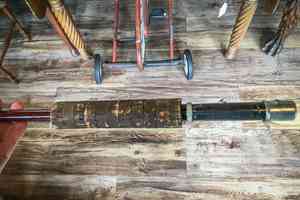
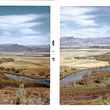
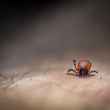
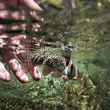

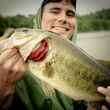
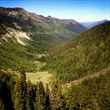
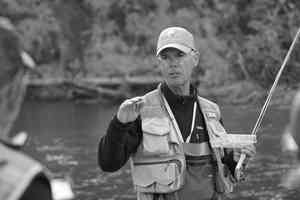
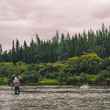

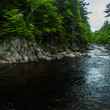

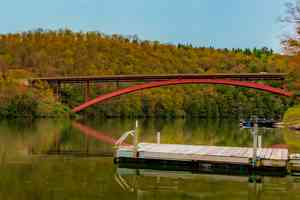
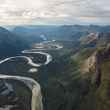

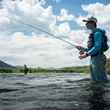

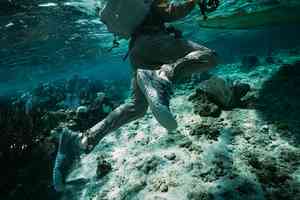
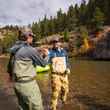
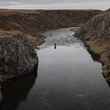
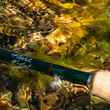
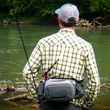
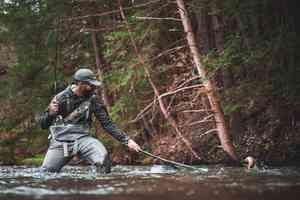
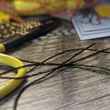
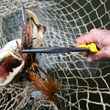
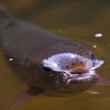

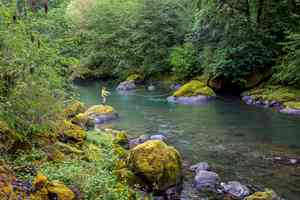
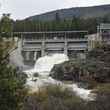
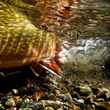
Comments